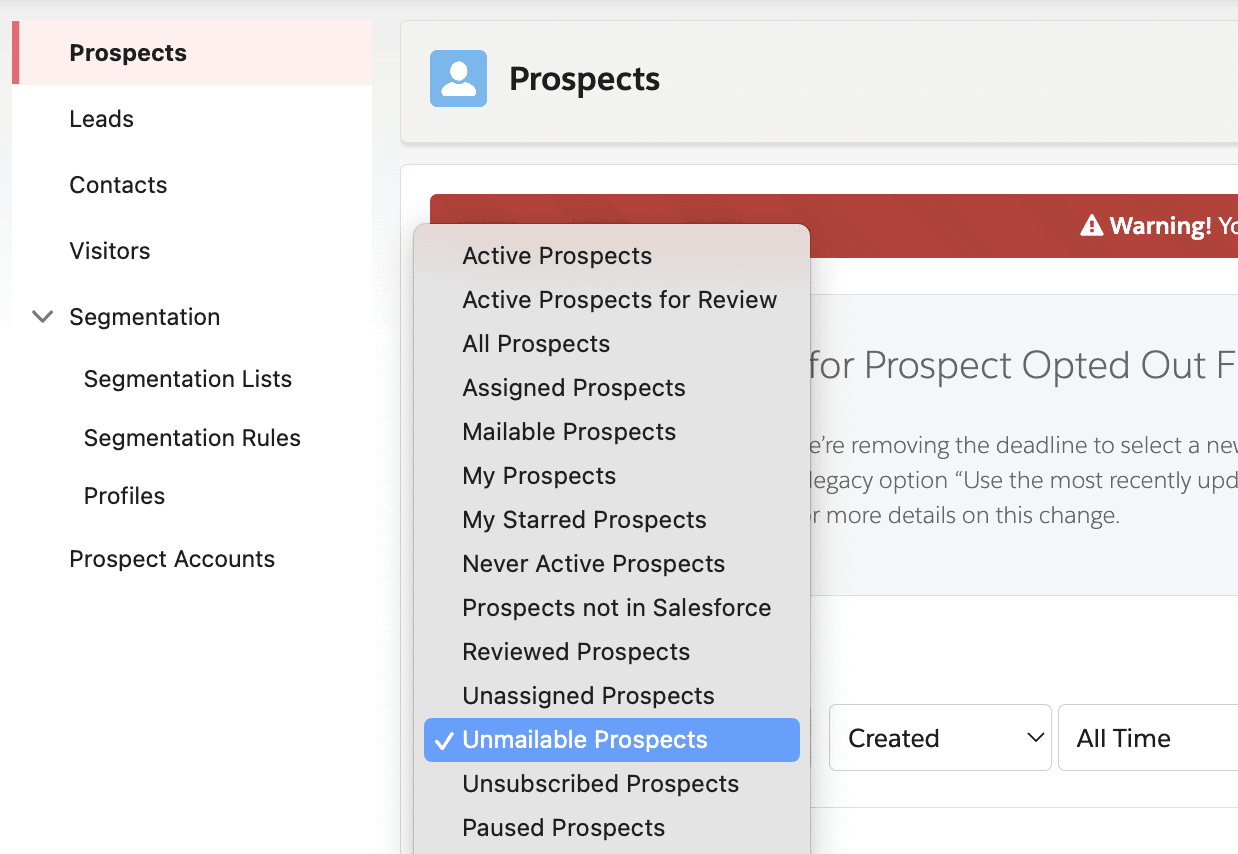Mastering the Salesforce AI Specialist Certification: A Comprehensive Guide to Success
As AI continues to evolve and integrate into more industries, Salesforce is leading the way with advanced tools that streamline workflows, optimize customer engagement, and bolster predictive capabilities. The Salesforce AI Specialist certification exam is designed to assess your understanding of Salesforce’s AI features, especially as they relate to handling data securely, managing prompts, and configuring the Einstein ecosystem for predictive insights. Here’s a deep dive into what you need to know to excel in this certification and some real-world applications to help make complex concepts clearer.
Why the Salesforce AI Specialist Exam?
The Salesforce AI Specialist exam is tailored for professionals who aim to leverage Salesforce’s AI tools to create meaningful business solutions. It covers essential topics like configuring Einstein Copilot, managing reusable prompt templates, using predictive analytics, and securing data with the Trust Layer. Passing this exam certifies your ability to manage Salesforce’s AI tools in a way that enhances the customer experience and supports data-driven decision-making.
Key Exam Topics and Use Cases
Prompt Management and Customization
Overview: Prompt management in Salesforce involves creating reusable templates for large language models (LLMs) to enable consistent, accurate responses across workflows. These templates are used to help guide the AI’s responses in line with your company’s brand and customer service policies.
Example Use Case: Imagine you’re a Customer Support Manager at an e-commerce company, and you want AI to handle common inquiries about product availability and return policies. By creating a reusable prompt template in Salesforce’s Prompt Builder, you can ensure that AI provides consistent responses to these FAQs, allowing your team to focus on more complex inquiries.
Resource: Salesforce Prompt Builder Documentation
Einstein Copilot Actions and Service Automation
Overview: Einstein Copilot is designed to automate actions like drafting sales emails, summarizing calls, and offering reply recommendations. By deploying Copilot actions, you can streamline workflows, reduce response times, and ensure a standardized customer experience across teams.
Example Use Case: A Sales Rep uses Einstein Copilot to draft personalized follow-up emails after client calls. The Copilot Action can pull CRM data dynamically, grounding the email content in previous conversations and product interests. This action speeds up the rep’s workflow, ensuring each follow-up is prompt, relevant, and impactful.
Resource: Salesforce Einstein Copilot Overview
Data Security with the Einstein Trust Layer
Overview: The Trust Layer in Salesforce is crucial for protecting sensitive data, with features like data masking, anonymization, and toxicity detection. As AI interacts with customer data, it’s vital to configure these security settings to safeguard against data exposure.
Example Use Case: In a healthcare setting, a patient information system might utilize the Trust Layer to mask personal details when interacting with AI. For instance, if an AI assists a nurse in providing appointment details, the patient’s name and contact information can be masked until verification steps are complete.
Resource: Salesforce Trust Layer Documentation
Predictive Customer Engagement
Overview: One of Salesforce’s powerful features is its predictive modeling capabilities, such as customer churn prediction and lifetime value forecasting. These insights help companies identify at-risk customers and focus retention efforts where they’ll be most effective.
Example Use Case: A telecom provider can use predictive AI to identify customers likely to switch to competitors based on usage patterns. By enabling customer churn prediction, the AI flags at-risk accounts, allowing Customer Success teams to reach out proactively and offer retention incentives.
Resource: Salesforce Customer Engagement Analytics
Session Tracking and Data Cloud Integration
Overview: For companies needing more robust data storage, Data Cloud provides a session tracking feature to store and manage AI session data, such as user interactions and copilot responses. This allows businesses to access a history of AI interactions for quality checks and improvements.
Example Use Case: A retail chain might use session tracking to review the AI’s interactions with customers in high-value segments. By storing and analyzing these sessions, the company can refine prompts and ensure the AI is addressing customer needs effectively.
Resource: Salesforce Data Cloud Documentation
Key Steps to Success
Passing the AI Specialist certification requires a deep understanding of the technology and how it applies to real-world scenarios. Here are some recommended steps:
Understand Prompt Templates and Contextual Responses: Salesforce’s prompt templates allow you to standardize responses across the AI’s interactions. Use the Prompt Template Manager to organize and test templates, ensuring they align with business goals. Familiarize yourself with contextual role-playing—where prompts are crafted to mimic specific roles or personas.
Master Einstein Copilot’s Capabilities: Explore how Copilot can support actions like summarizing conversations, suggesting replies, and handling requests in Service Cloud. Learn how to set up custom Copilot actions in the Copilot Action Library and practice configuring actions to match your company’s processes.
Prioritize Data Security: Enabling the Trust Layer is essential for compliance and data protection. In practice, this means configuring data masking for sensitive information, setting toxicity scores, and auditing data to keep it secure.
Leverage AI Insights: With AI-driven predictions, you can anticipate customer needs more effectively. Build predictive models that assess lifetime value, churn risk, and more. Ensure your predictive models are set to API version 59 or higher to access the latest features.
Practice with Real-World Scenarios on Trailhead: Salesforce’s Trailhead platform offers practical exercises tailored to these AI functionalities. Completing these exercises will help reinforce concepts and ensure you’re comfortable with the tools.
Resource: Salesforce AI Specialist Certification Module on Trailhead
Frequently Asked Questions
How difficult is the Salesforce AI Specialist exam?
The exam is intermediate to advanced in difficulty, depending on your familiarity with Salesforce’s AI tools. Hands-on experience with AI in a real Salesforce environment is highly beneficial.
Are there practice resources available?
Yes, Trailhead modules and documentation are invaluable for studying. Reviewing official Salesforce AI documentation, participating in community forums, and watching tutorial videos on YouTube can provide additional insights.
What are some must-know configurations?
Key configurations include setting up the Trust Layer, customizing prompts, and utilizing predictive analytics. Practice creating custom copilot actions, understanding permissions for prompt templates, and fine-tuning AI responses.
Resource: YouTube Tutorial on Salesforce AI Setup
Key Salesforce AI Tools and Features to Master Before the Exam
Call Explorer
Functionality: Analyze call data to gain insights using AI.
Configuration/Action: Enable Einstein Conversation Insights and assign permissions.
Considerations:
Polymorphic fields (e.g., Activities related list on Account object) are not supported.
Call Insights
Functionality: Obtain insights from call interactions to support business decisions.
Configuration/Action: Activate call insights and configure settings as needed.
Considerations:
Only certain fields and objects are supported; check for compatibility.
Call Summaries
Functionality: Generate summaries of calls for easy reference.
Configuration/Action: Enable call summaries within Copilot actions.
Considerations:
Be mindful of token usage; verify that fields are supported.
Copilot Analytics
Functionality: Provides AI-driven insights on customer engagement and task completion.
Configuration/Action: Run Copilot Analytics reports to track and analyze interactions.
Considerations:
Some analytics may require additional licensing; confirm access rights.
Custom Copilot Actions
Functionality: Build workflows specific to business processes, such as custom flows or summaries.
Configuration/Action: Set up custom actions within the Copilot Actions Library.
Considerations:
Monitor for unsupported objects or fields; ensure alignment with business goals.
Customer Churn Prediction
Functionality: Predict and reduce potential customer loss.
Configuration/Action: Implement predictive models using Salesforce AI.
Considerations:
High-quality data is essential for accuracy.
Customer Support Workflow Automation
Functionality: Streamline support processes by automating tasks with AI.
Configuration/Action: Set up Service AI grounding and standard Copilot actions.
Considerations:
Test workflows to confirm accuracy and effectiveness.
Data Cloud and Prompt Template Manager
Functionality: Oversee data security and manage prompt templates.
Configuration/Action: Assign roles (e.g., Data Cloud Admin, Prompt Template Manager).
Considerations:
Data Cloud provisioning is necessary for full functionality.
Data Encryption in Trust Layer
Functionality: Secure data during AI processing.
Configuration/Action: Enable encryption and anonymization in the Trust Layer.
Considerations:
Encryption may affect processing times; balance security and performance needs.
Data Masking in Trust Layer
Functionality: Protect sensitive information by masking data for LLMs.
Configuration/Action: Set data masking in the Einstein Trust Layer.
Considerations:
Not all fields support masking; thorough testing is advised.
Data Provisioning for Grounding
Functionality: Store data in Data Cloud to enhance AI response accuracy.
Configuration/Action: Provision Data Cloud resources for grounding data.
Considerations:
Regular updates to grounding data help maintain response quality.
Dynamic Grounding
Functionality: Use contextual data securely for AI responses.
Configuration/Action: Configure secure data retrieval for real-time prompts.
Considerations:
Ensure data sources are reliable and current.
Einstein Copilot Actions (e.g., Drafting Sales Emails)
Functionality: Automate tasks such as drafting emails.
Configuration/Action: Set up custom actions within Copilot Builder.
Considerations:
Proper permissions and role assignments are crucial.
Einstein Studio Model Builder
Functionality: Integrate custom or fine-tuned LLMs with Salesforce.
Configuration/Action: Add and manage models in Einstein Studio, including AWS-hosted models.
Considerations:
Ensure permissions and data integration are configured correctly.
External Service Integration
Functionality: Connect Salesforce AI with external services (e.g., AWS).
Configuration/Action: Enable and configure external services in Einstein Studio.
Considerations:
Ensure API setup and permissions meet security requirements.
Field Generation
Functionality: Personalize AI responses with dynamic fields.
Configuration/Action: Enable Field Generation in settings.
Considerations:
Verify field compatibility before implementation.
Flex Templates
Functionality: Create adaptable templates for standard and custom objects.
Configuration/Action: Enable Flex Templates and Dynamic Fields in settings.
Considerations:
Test templates in a sandbox before deploying.
Generative AI Setup
Functionality: Enable generative AI across the organization for automation.
Configuration/Action: Activate Einstein Generative AI in Setup.
Considerations:
API version 59 or higher is required; verify compatibility.
Grounding and Record Merge Fields
Functionality: Personalize prompts with dynamic CRM data.
Configuration/Action: Use record merge fields in prompt templates.
Considerations:
Test for unsupported lists or fields.
LLM Configuration Settings
Functionality: Fine-tune AI responses by adjusting model parameters.
Configuration/Action: Modify hyperparameters in prompt templates.
Considerations:
Testing configurations is essential for desired outcomes.
Masked Data and Toxicity Scoring
Functionality: Monitor and filter inappropriate AI content.
Configuration/Action: Enable toxicity detection and configure masking in Trust Layer.
Considerations:
Regular testing helps ensure accurate filtering.
Predictive Model for Lifetime Value
Functionality: Forecast customer value to guide strategy.
Configuration/Action: Develop predictive models for lifetime value.
Considerations:
High-quality data is crucial for reliable predictions.
Prompt Builder
Functionality: Create reusable prompts for LLMs.
Configuration/Action: Use Prompt Builder to design and test templates.
Considerations:
Ensure prompts align with business objectives.
Prompt Template Debugging
Functionality: Troubleshoot prompt templates using the Dynamic Panel.
Configuration/Action: Enable debugging in Copilot Builder.
Considerations:
Helpful for diagnosing prompt and data grounding issues.
Prompt Template Permissions
Functionality: Control access to prompt template creation and modification.
Configuration/Action: Assign Prompt Template Manager and User permissions.
Considerations:
Review assignments carefully to prevent access issues.
Role-Playing Prompts
Functionality: Use specific personas in prompts to enhance responses.
Configuration/Action: Design prompts to instruct AI on character roles.
Considerations:
Ensure brand voice consistency.
Service AI Grounding
Functionality: Enhance responses with relevant knowledge articles.
Configuration/Action: Enable Service Replies, Grounding, and Service AI.
Considerations:
Grounding accuracy depends on knowledge base quality.
Session Tracking with Data Cloud
Functionality: Store and review AI interaction data.
Configuration/Action: Enable session tracking within Data Cloud.
Considerations:
Ensure compliance with privacy policies for data storage.
Template Testing and Validation
Functionality: Test and validate prompt templates for accurate responses.
Configuration/Action: Use test cases to assess performance.
Considerations:
Iterative testing optimizes template accuracy.
Toxicity Filter Reports
Functionality: Identify and filter inappropriate AI responses.
Configuration/Action: Create reports in the Trust Layer to monitor toxicity.
Considerations:
Regular testing ensures filter effectiveness.
Trust Layer Audit Trail
Functionality: Track and store AI prompt submissions for compliance.
Configuration/Action: Enable audit trail in Trust Layer settings.
Considerations:
Essential for regulated industries; ensure secure storage.
Zero-Data Retention Policy
Functionality: Preserve privacy by not retaining data beyond necessary processing.
Configuration/Action: Enable Zero-Data Retention in Trust Layer.
Considerations:
May limit future data analysis potential.
Final Thoughts
Achieving the Salesforce AI Specialist certification can significantly enhance your capabilities in deploying, managing, and securing AI within Salesforce. From streamlining customer support to driving sales insights, these skills empower you to deliver impactful results that benefit both customers and the bottom line. Whether you’re handling data-sensitive tasks, predicting customer behavior, or configuring the Einstein Copilot, Salesforce’s AI tools provide the flexibility and power to support a wide range of business needs.
Prepare thoroughly, leverage the resources available, and bring your A-game to the exam. Good luck on your journey to becoming a Salesforce AI Specialist!


